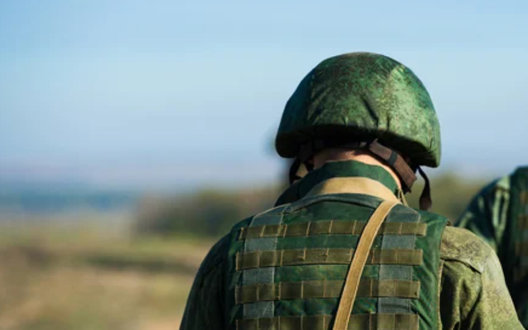KYIV. UkraineGate , 13 , April , 2022 | War News .
In international law, the rights of prisoners of war are the responsibility of an international treaty, better known as the Geneva Conventions. At the same time, there are norms in Ukrainian legislation that regulate the rules of treatment of such persons. Maria Zvyagintseva, a lawyer with the Legal Hundred NGO, answered the main questions about the rights of prisoners of war.
What regulates the rights of prisoners of war?
Thus, according to the interlocutor, the basic regulation is the Geneva Convention relative to the Treatment of Prisoners of War of August 12, 1949. It applies in all cases of declared war or any other armed conflict, as well as occupation (partial or complete).
At the bylaw level, there is also the current Instruction on the procedure for implementing the norms of international humanitarian law in the Armed Forces of Ukraine, approved by the order of the Ministry of Internal Affairs of March 23, 2017 № 164.
Also on April 5, the Cabinet of Ministers, by Resolution №413, approved the Procedure for Holding Prisoners of War. Funding for the detention of prisoners of war in camps and precincts for prisoners of war in 2022 will be provided from the reserve fund of the state budget.
“According to this resolution, the Ministry of Justice must, in particular, identify and restructure penitentiary institutions for prisoners of war. And the Ministry of Internal Affairs will be responsible for photography, dactyloscopic registration and registration of genetic traits of prisoners of war within seven calendar days from the date of receipt of information about their arrival, “said the lawyer.
Who are the prisoners of war?
Thus, according to the Instruction, these are persons who were taken prisoner by the enemy and belong to:
– personnel of the armed forces of the parties to the conflict, as well as members of the militia or volunteer units that are part of these armed forces;
– members of other militias and volunteer units, such as organized resistance movements belonging to one of the parties to the conflict and operating in or outside their territory, even if that territory is occupied, provided that these militias or volunteer units, in particular organized movements resistance, meet the following conditions:
• they are commanded by a person who is responsible for his subordinates;
• they have a permanent mark, well recognizable at a distance;
• they carry weapons openly;
• they carry out their operations in accordance with the laws and customs of war;
– members of the regular armed forces who declare their allegiance to the government or authority, not recognized by the State detaining them;
– persons accompanying the armed forces but not actually members of the armed forces, for example, civilians from the crews of military aircraft, military correspondents, suppliers, personnel of work units or services of the armed forces, provided that they have received permission from those the armed forces they accompany, for which they are issued identity cards;
– members of the crews of merchant navy vessels, including captains, pilots and young men, as well as crews of civil aircraft of the parties to the conflict, who do not enjoy more favorable treatment under any other provisions of international law;
– inhabitants of the unoccupied territory who, when approaching the enemy, arm themselves to resist the forces of the invader, not having time to form regular troops, provided that they carry weapons openly and abide by the laws and customs of war.
According to the lawyer, spies and mercenaries do not have the right to POW status.
Treatment of prisoners of war
“Prisoners of war are in the hands of an enemy state, not individuals or military units that have taken them prisoner. Irrespective of the responsibilities that individuals may bear, the holding State is responsible for the treatment of prisoners of war. In particular, no prisoner of war may be subjected to physical mutilation or medical or scientific experiments of any nature that are not justified by the need for medical, dental or inpatient treatment of the prisoner of war and are not carried out in his interests, “said the interlocutor.
According to her, prisoners of war must also be protected, in particular from acts of violence or intimidation, as well as from the insults and curiosity of the public. The state of captivity is obliged to ensure their free detention, as well as to provide them with free medical care required by their state of health.
Incapable prisoners of war, in addition to equipment and maintenance of their locations, may be forcibly involved in non-military work that is not associated with a risk to their lives and health, taking into account age, sex and physical qualities. Prisoners can be involved in:
– work related to the management of the camp, its commissioning or maintenance and upkeep;
– agricultural work;
– industries related to the production or extraction of raw materials;
– manufacturing industries, except metallurgical, machine-building and chemical industries;
– public and construction works that are not of a military nature;
– transport and loading and unloading of material stocks that are not of a military nature or purpose;
– trade entrepreneurship, applied arts;
– consumer services;
– utilities that are not of a military nature or purpose.
Punishment for non-compliance with rights
According to the Criminal Code of Ukraine, there is liability for ill-treatment of prisoners of war (Article 434).
According to the law, ill-treatment of prisoners of war, which has occurred repeatedly, or is associated with extreme cruelty or against the sick and wounded, as well as negligent performance of duties to the sick and wounded by persons entrusted with their treatment and care them, in the absence of signs of a more serious crime are punishable by imprisonment for up to three years.
Cruel treatment of prisoners of war is also a violation of the laws and customs of war, covered by Art. 438 of the Criminal Code of Ukraine:
– ill-treatment of prisoners of war or civilians, expulsion of civilians for forced labor, looting of national values in the occupied territories, use of means of warfare prohibited by international law, other violations of the laws or customs of war provided for in international treaties provided by the Verkhovna Rada of Ukraine, as well as issuing an order to commit such acts shall be punishable by imprisonment for a term of eight to twelve years.
– the same acts, if combined with premeditated murder, – shall be punishable by imprisonment for a term of ten to fifteen years or life imprisonment.
Source: Ukrgate







